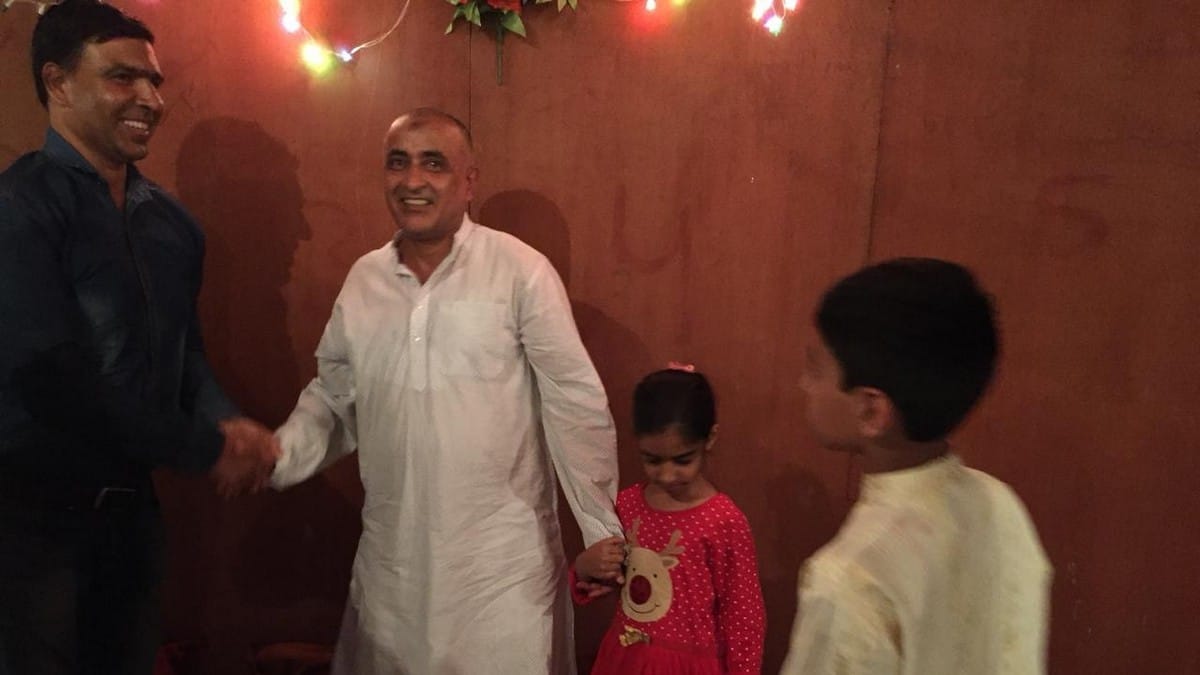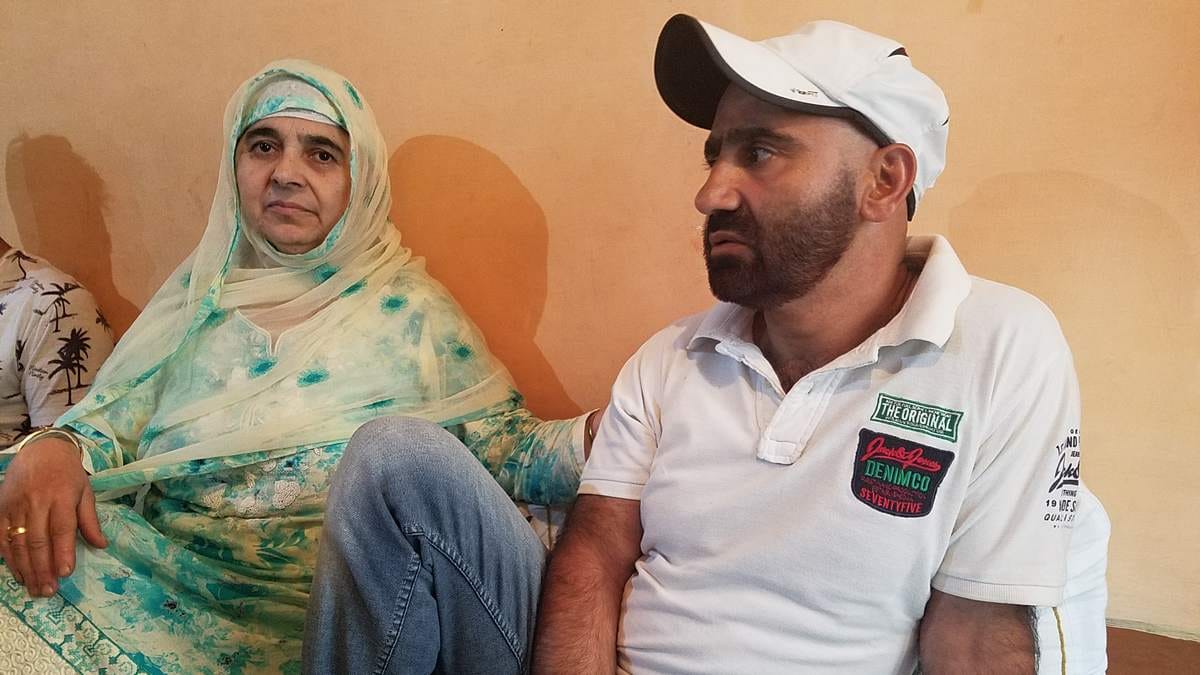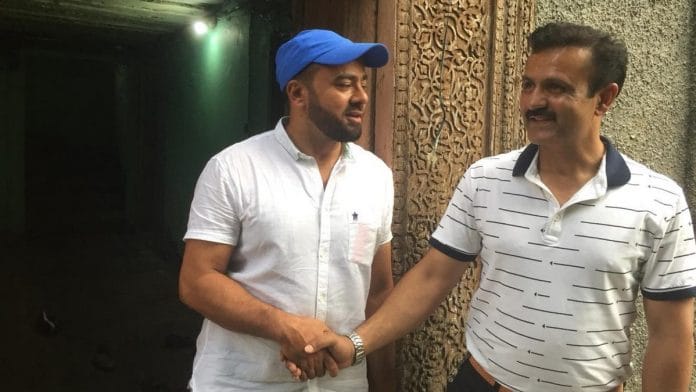Srinagar: For the three residents of Kashmir who were acquitted of terror charges and released from prison after 23 years, the ordeal in jail would worsen every time there was a major attack or protest in the Valley.
The three men, who arrived in Srinagar Wednesday, two days after being acquitted by the Rajasthan High Court, said their fellow inmates would thrash them the moment any big news related to Kashmir would reach the jail premises.
The men, Mehmood Ali Bhat, Lateef Ahmed Waja and Mirza Nisar, all residents of Srinagar’s Rainawari area, were released from Jaipur central jail after being imprisoned since 1996 for their alleged involvement in terror attacks.
The cases against the men
Mirza Nisar and Waja, whose homes stand just a few metres from each other, were just 17 years old when they were picked from Nepal up by the Special Cell of the Delhi Police.
Officially, their arrests were shown to have taken place in Uttar Pradesh. Both of them had left turmoil-hit Kashmir in 1996 to trade in carpets, but ended up spending their youth in jail.
Carpet seller Mehmood Ali Bhat, now 48, was arrested after the Delhi Police accused him of being part of the Lajpat Nagar bombing in 1996, which killed 13 people. All three were acquitted in that case, but had to spend another seven years in prison for their alleged involvement in the 1996 bomb attack on a state transport bus at Samleti village in Dausa, Rajasthan.

Targeted after Pulwama too
The men said they were targeted after the Pulwama terror attack on 14 February this year too — beaten up by their cell-mates while jail staffers remained spectators.
They said the “hateful atmosphere” particularly worsened in the last 5-6 years, and added that it was becoming increasingly difficult for prisoners of Kashmiri origin to survive in jails.
Six days after the Pulwama suicide bombing that killed 40 CRPF personnel, a Pakistani prisoner named Shakoorullah was beaten to death by a group of inmates at the Jaipur jail.
“After he was killed, Kashmiri inmates and some other Muslim prisoners were lodged together in a cell — in our small cell, there were at least 12 inmates. We weren’t allowed to move out for almost a week,” said Lateef Ahmed Waja.
“We went on hunger strike, demanding that jail staff provide a safe environment for us. I was brought out from the cell alone and thrashed severely by lathis. Nisar received the same treatment. We were beaten to a pulp, and ended up spending more than three weeks in the cell.”
Also read: Kashmir battles drugs now — cases rise by 1,000% in 3 years at just one hospital
Police response
N.R.K. Reddy, the director general (prisons) in Jaipur, said these inmates were lodged in the cell to keep them out of harm’s way.
“The inmates were lodged in the high-security ward. They are allowed to move out of their cell at certain hours, which we restricted after the killing of the Pakistani prisoner,” Reddy said.
“There might have been heated exchanges but we had to ensure that no untoward incident takes place in the prison. We have to ensure a safe place for every prisoner, irrespective of their religion and identity.”
He added that the jail supervisor was transferred after the incident, and many new measures were introduced.
Numerous horrors
Waja’s mother Noor Jehan said this wasn’t the only incident where her son and others were attacked.
“Three-four years ago, we had gone to visit him and found out he had been badly beaten up. He handed over a bloodied shirt which he was wearing when he was beaten up. I brought that shirt to Kashmir and showed it to different politicians of the Valley. They said they would help, but nothing happened. We had only Allah on our side,” she said.
While they are relieved that their names have finally been cleared of the charges, Nisar said he had been thrashed in every state he was lodged in.

“The situation has turned grim. I was lodged in Delhi, Gujarat and Rajasthan, and everywhere there were occasions when we were thrashed. Whenever there was an attack or protest in Kashmir, fellow prisoners would turn their angst against us. Staffers used to act as spectators and, on many occasions, meted out punishments of their own,” said Nisar.
Bhat added that they had witnessed many horrors, but “there are many other Kashmiri inmates whose families might get disturbed hearing my words, so I will not elaborate”.
“I would urge the families to be patient. There might not be enough justice in this world, but in Allah’s court, there is justice,” he said.
“There were times when I wanted to write a will asking not to be buried in the same graveyard where my parents are buried. I thought I wouldn’t be able to face them in the afterlife. I am out now, maybe for this very reason — to finally rest with my parents. Maybe then I will have peace.”
Also read: Qualified outside, unemployable at home — J&K youth face odd dilemma







The genocide against Kashmiri pandits was done by jklf , not supported by any gov as happened in Gujarat , many innocent Kashmiris are killed and raped than Kashmiri pandits, killing of innocent it not right at any level
This animal called Ritesh needs to be put in Anda cell by Mumbai Police. Only then he will understand the meaning of suffering.
Miscarriage of justice is bad, but no need to portray these guys to be Jesus or Gandhi.
Kashmiri Muslims have done lot worse to Pandits and done terrorism in rest of India. The security forces must be careful not to punish the innocent.